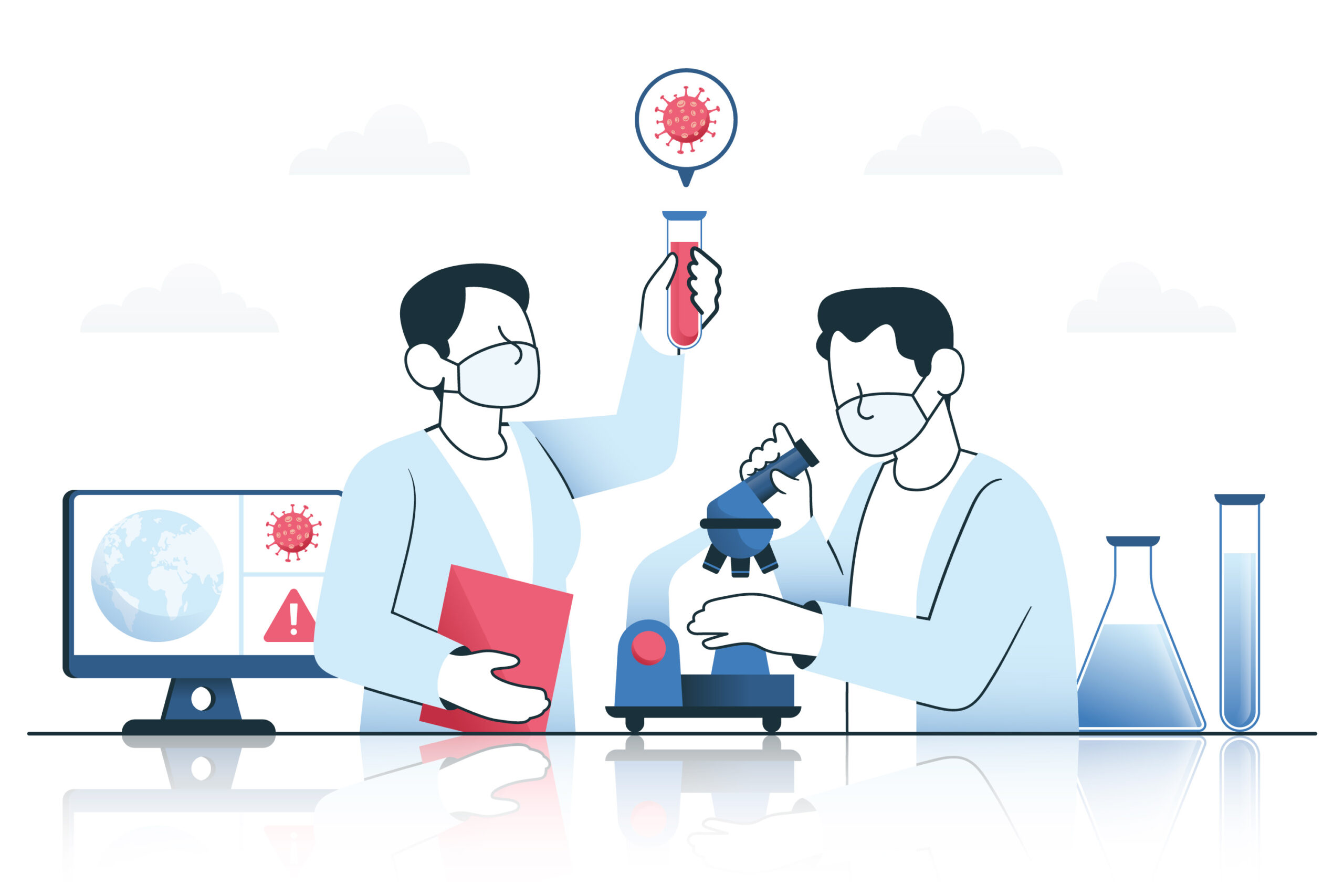As a fresher preparing for a Clinical Research Consultant interview, it’s important to understand that the role requires knowledge of clinical trials, regulatory guidelines, and the ability to support clinical research projects. Consultants typically provide strategic advice and ensure that clinical trials are conducted efficiently and in compliance with regulations, so you’ll need to demonstrate strong analytical skills, understanding of clinical trial processes, and effective communication abilities.
1. Preparation for the Interview
- Understand the Role: A Clinical Research Consultant typically helps to guide clinical trial operations, ensuring they meet regulatory standards and are designed effectively. They might also provide strategic input, data analysis, and communication between stakeholders. As a fresher, you may not have direct experience, but understanding the structure of clinical trials and the consultant’s role in them is key.
- Familiarize Yourself with Clinical Trials: Research the phases of clinical trials (Phase I-IV), their purposes, and the key players involved (sponsors, CROs, regulatory bodies, ethics committees). Knowing ICH-GCP (International Conference on Harmonisation – Good Clinical Practice) guidelines is also crucial.
- Knowledge of Regulatory Guidelines: Learn about regulations like the FDA, EMA, and local regulations governing clinical trials. You can also mention your awareness of ethical considerations in clinical research.
- Communication Skills: Since consultants work with different stakeholders (clinical teams, sponsors, regulatory bodies), it’s important to showcase your ability to communicate effectively and build professional relationships.
- Problem-Solving: Clinical Research Consultants often provide solutions to challenges faced during trials, such as protocol deviations or regulatory hurdles.
2. Key Skills Required
- Understanding of Clinical Trial Phases: Familiarity with how trials are designed, run, and analyzed across different phases.
- Knowledge of Regulatory Compliance: Basic knowledge of GCP, FDA regulations, and ethical principles.
- Communication Skills: Ability to explain complex clinical concepts in a simple, clear manner.
- Data Analysis Skills: Understanding how clinical data is analyzed to assess the efficacy and safety of a drug.
- Problem-Solving Abilities: Identifying potential risks and offering solutions during the trial process.
- Project Management: While you may not have direct experience, an understanding of managing timelines, resources, and trial deliverables is beneficial.
3. Common Interview Questions and Suggested Answers
Basic Knowledge and Industry Understanding:
- Q1: What is a clinical trial, and why is it important?
A1: A clinical trial is a research study conducted to evaluate the safety and efficacy of a drug, medical device, or treatment in human subjects. It is crucial because it ensures that new treatments are safe, effective, and meet regulatory standards before being made available to the public. Clinical trials follow a rigorous process to determine if a new intervention works as intended and whether it offers a benefit over existing treatments. - Q2: What are the key phases of a clinical trial, and what happens in each?
A2: Clinical trials typically have four phases:- Phase I: Tests the safety of a drug in a small group of healthy volunteers or patients.
- Phase II: Assesses the drug’s efficacy and further evaluates safety in a larger group of patients.
- Phase III: Confirms the drug’s effectiveness, monitors side effects, and compares it to commonly used treatments in a larger population.
- Phase IV: Conducted after a drug is approved for market use, it monitors long-term effects, safety, and effectiveness.
Regulatory and Compliance Questions:
- Q3: Can you explain what ICH-GCP is and why it is important in clinical research?
A3: ICH-GCP (International Conference on Harmonisation – Good Clinical Practice) is a set of ethical and scientific quality standards for the design, conduct, performance, and reporting of clinical trials. It ensures that the rights, safety, and well-being of trial participants are protected and that the data collected is credible and accurate. It is essential for compliance with regulatory authorities like the FDA and EMA. - Q4: How would you ensure compliance with regulatory guidelines in a clinical trial?
A4: To ensure compliance, I would closely follow the GCP guidelines, maintain accurate and thorough documentation, and regularly monitor trial activities to ensure adherence to the approved protocol. Additionally, I would stay informed about regulatory updates and collaborate with regulatory bodies, ethics committees, and study monitors to ensure that the trial follows all local and international laws.
Scenario-Based Questions:
- Q5: Imagine there is a protocol deviation during a clinical trial. How would you handle it?
A5: If a protocol deviation occurs, I would first assess the nature and impact of the deviation on the safety of participants and the integrity of the trial data. I would document the deviation and report it to the appropriate authorities, including the ethics committee and sponsor. Depending on the severity, I would work with the trial team to implement corrective actions to prevent future deviations. - Q6: What would you do if a site is consistently underperforming or not enrolling enough patients in a clinical trial?
A6: If a site is underperforming, I would first engage with the site to understand the reasons for the low enrollment or poor performance. It could be due to staffing issues, lack of patient referrals, or competing trials. I would work on strategies to address the issues, such as providing additional resources, offering more training, or reallocating the enrollment target to other sites. Effective communication with the site is crucial to resolve the problem.
Problem-Solving and Critical Thinking:
- Q7: How would you handle a situation where an adverse event occurs during a trial?
A7: If an adverse event occurs, I would follow the safety reporting procedures outlined in the study protocol. I would document the event in detail, notify the relevant authorities (ethics committee, sponsor, regulatory bodies), and investigate the cause of the event. Depending on the severity, the trial may need to be paused for further evaluation. Patient safety is always the priority, and the trial team would assess whether the event is related to the drug or intervention being tested. - Q8: You are consulting on a trial where the recruitment timeline is delayed. What steps would you take to get the trial back on track?
A8: I would start by analyzing the root cause of the delay—whether it’s related to recruitment strategies, site performance, or participant outreach. After identifying the issue, I would implement targeted strategies such as increasing site support, enhancing recruitment efforts, or adjusting the inclusion/exclusion criteria to make recruitment more feasible without compromising trial integrity. Clear communication with stakeholders to realign expectations and ensure adherence to timelines would also be important.
Behavioral Questions:
- Q9: Describe a time when you worked on a challenging project or task in your academic or professional life. How did you overcome the challenges?
A9: During my academic studies, I was involved in a research project where I had to analyze a large dataset to draw meaningful conclusions. The challenge was managing the data accurately while working within tight deadlines. I overcame the challenge by breaking the task into smaller, manageable sections, prioritizing the most critical aspects, and working systematically. I also sought feedback from my supervisor to ensure I was on the right track, which helped me complete the project successfully. - Q10: How do you manage multiple tasks or projects simultaneously?
A10: I manage multiple tasks by prioritizing them based on urgency and importance. I use time management tools like to-do lists and calendars to keep track of deadlines and progress. I also allocate time blocks to focus on specific tasks and minimize distractions to ensure that each project gets the attention it needs. Regular communication with team members helps ensure that everyone is aligned on priorities and progress.
Learning and Growth Questions:
- Q11: As a fresher, how do you plan to build your expertise in clinical research?
A11: I plan to build my expertise by continuously learning from industry resources such as clinical research publications, attending relevant webinars, and staying updated on regulatory changes. Additionally, I aim to gain hands-on experience by working closely with experienced professionals and being involved in various aspects of clinical trial management. I am also open to further training and certification in GCP and clinical research methodologies to enhance my skills. - Q12: Why are you interested in becoming a Clinical Research Consultant?
A12: I’m interested in becoming a Clinical Research Consultant because I enjoy problem-solving and strategic thinking, and I am passionate about advancing healthcare through well-designed and executed clinical trials. The role allows me to combine my interest in clinical research with my analytical and communication skills to help drive successful outcomes in clinical trials. I’m also eager to contribute to the development of new treatments that can improve patient care and outcomes.















